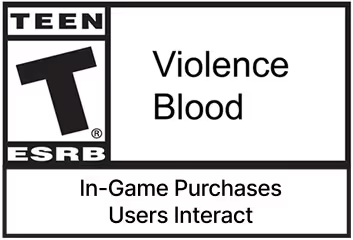Jinha Lee, CEO of Spatial / Wooster Games - studio of Animal Company, discussed the game's rapid success with minimal marketing budget, achieving 1 million monthly active users and 1 billion TikTok views within 1.5 years. Animal Company is a free-to-play co-op survival adventure game on Meta Quest, leverages VR's unique platform strengths to create shareable, immersive experiences. Jinha emphasized the importance of social interaction, repeatability, creativity, and storytelling in VR games. The game's success is attributed to its ability to inspire players to create and share their own stories, fostering a vibrant and engaged community. See recap of the talk below:
Introduction to Animal Company and VR's Potential
- Jinha is the CEO of Spatial and its gaming team, Wooster Games, and creator of Animal Company.
- Animal Company is described as a free-to-play co-op survival adventure game on the Meta Quest, inspired by games like Lethal Company and Among Us.
- Jinha Lee emphasizes the potential of VR to redefine digital entertainment and grow the VR ecosystem.
- The presentation will focus on creating engaging, marketable, and financially sustainable VR experiences.
Success Metrics and Initial Growth
- Jinha shares three key metrics: 1 million monthly active users within six months, 1 billion TikTok views on the Animal Company hashtag within a year, and almost $0 marketing budget.
- Despite the minimal marketing budget, Animal Company has consistently ranked at the top of the Meta Quest revenue chart.
- The success is attributed to the unique aspects of VR and the community's love for the game.
- Jinha Lee plans to discuss how to leverage VR's unique aspects to grow fast with a small team.
Evolution of the Company and Viral Game Strategy
- The company started in 2017 with a mission to help people work better in AR and VR, focusing on shared spaces for collaboration.
- Over time, the company pivoted to creating shareable games that could go viral, inspired by popular multiplayer games like Among Us and Lethal Company.
- The team identified that viral moments in games often involve social interactions and shared experiences.
- They broke down the elements of viral games into four key aspects: social, repeatable, creative, and storytelling.
Leveraging Social Interaction in VR
- Social moments in VR involve people or animals, emphasizing the importance of physical interaction in VR.
- VR has a natural advantage in creating shared social experiences, thanks to technologies like Gorilla Tag's movement and presence.
- Voice communication and surrounding sound add to the sense of immersion in VR.
- Players love expressing themselves in VR, and the game should accommodate this by providing customization options and body language features.
Repeatability and Accessibility in Game Design
- Repeatability is crucial for a game to be replayable and shareable.
- Animal Company's core loop is simple: players meet in a lobby, collect loot, and go on an adventure together.
- The gameplay should be simple and accessible but variable and unpredictable to generate shareable moments.
- Procedural map generation adds to the replayability by ensuring no two forests are the same.
Encouraging Player Creativity
- Players' creativity can generate millions of different storylines and moments without manual design.
- Animal Company integrates physics into the game, allowing players to improvise and solve challenges in creative ways.
- Players have come up with unexpected solutions to game challenges, such as using a punching glove to cross a lake.
- The crafting feature allows players to combine items, leading to inventive solutions like building an airplane.
Storytelling and Player-Generated Content
- Storytelling in VR should encourage players to tell their own stories rather than telling them directly.
- The game should provide stages for players to create their own narratives.
- Simple building blocks, like a monster and a map, can inspire players to come up with different interpretations.
- The game environment should be inviting and encourage exploration, adding to the sense of immersion.
Building a Great World and Community Engagement
- Building a great world that inspires players is crucial for creating memorable and shareable experiences.
- Animal Company's world is designed to be inspiring, generating moments of awe and curiosity.
- Players feel a sense of mission and shared experience, leading to emotional connections and shared memories.
- The game's success is attributed to the community's passion and the developers' consistent support and engagement.
Conclusion and Future Directions
- Jinha recaps the key elements for creating marketable and shareable VR games: social presence, repeatable gameplay, creativity, and storytelling.
- VR is an effective tool for encouraging players to tell their own stories and build a community.
- The company supports creators by providing tools and engaging with the community through Discord and in-game events.
- The future of VR lies in making digital environments more physically active, social, and creative, ensuring they remain inspiring and engaging for players.




.webp)




